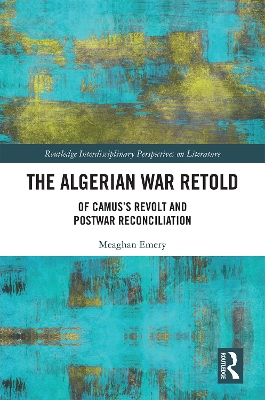Routledge Interdisciplinary Perspectives on Literature
1 total work
The Algerian War Retold: Of Camus’s Revolt and Postwar Reconciliation focuses on specific aspects of Albert Camus’s ethical thought through a study of his writings in conjunction with late 20th- and early 21st-century works written by Franco-Maghrebi authors on the topic of the Algerian War (1954-1962). It combines historical inquiry with literary analysis in order to examine the ways in which Camus’s concept of revolt -- in his novels, journalistic writing, and philosophical essays -- reverberates in productions pertaining to that war. Following an examination of Sartre’s and Camus’s debate over revolution and violence, one that in another iteration asks whether FLN-sponsored terrorism was justified, The Algerian War Retold uncovers how today’s writers have adopted paradigms common to both Sartre’s and Camus’s oeuvres when seeking to break the silence and influence France’s national narrative. In the end, it attempts to answer the critical questions raised by literary acts of violence, including whether Camusian ethics ultimately lead to justice for the Other in revolt. These questions are particularly poignant in view of recent presidential declarations in response to years of active pressure applied by associations and other citizens’ groups, prompting the French government to acknowledge the state’s abandonment of the harkis, condemn the repression of peaceful protest, and recognize the French army’s systematic use of torture in Algeria.
